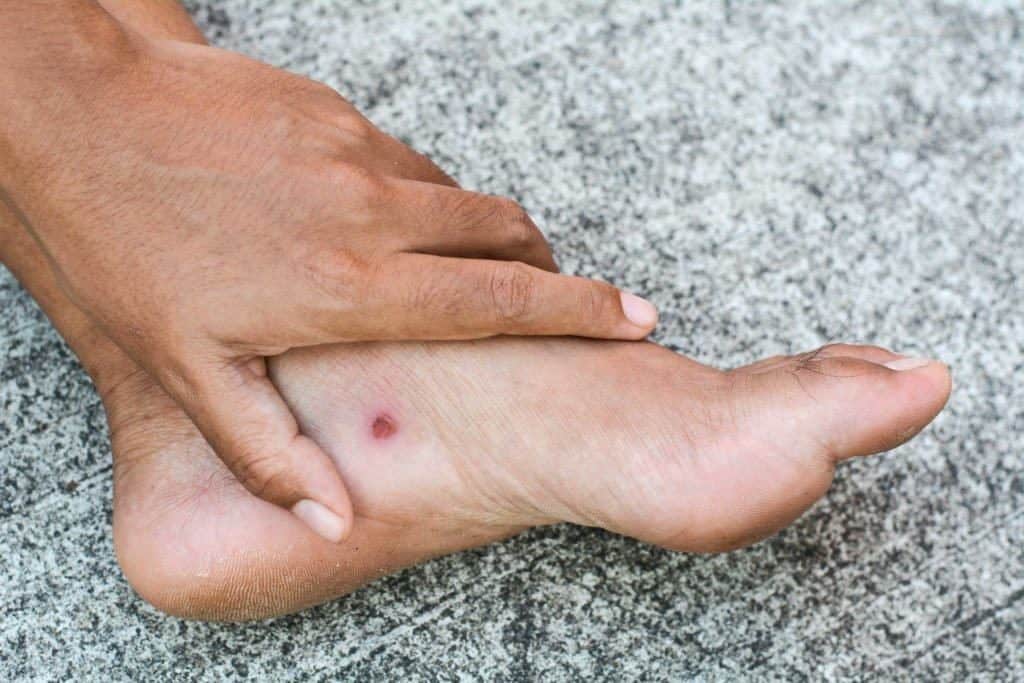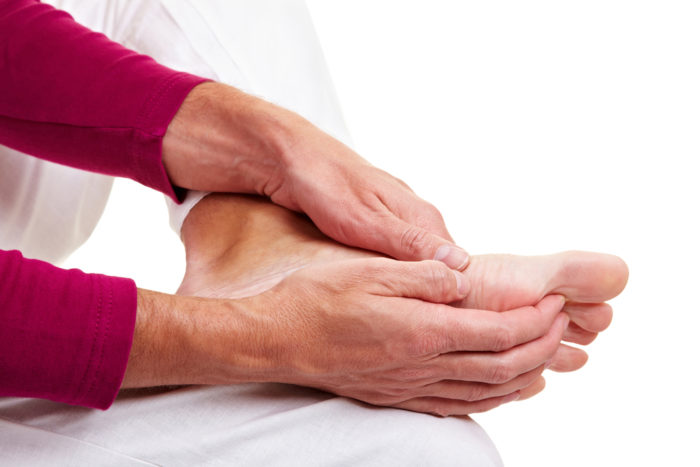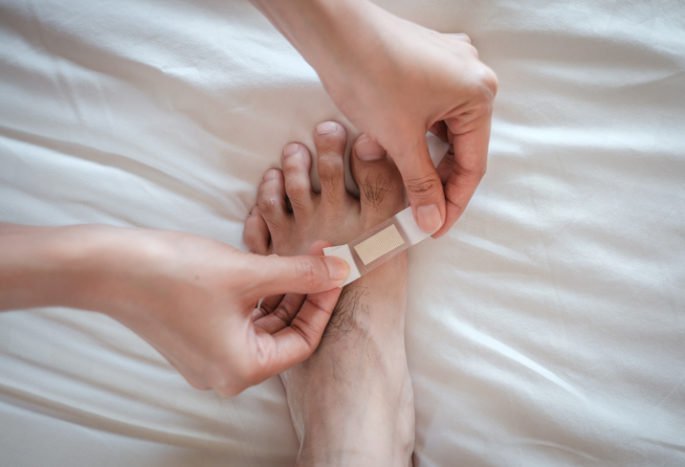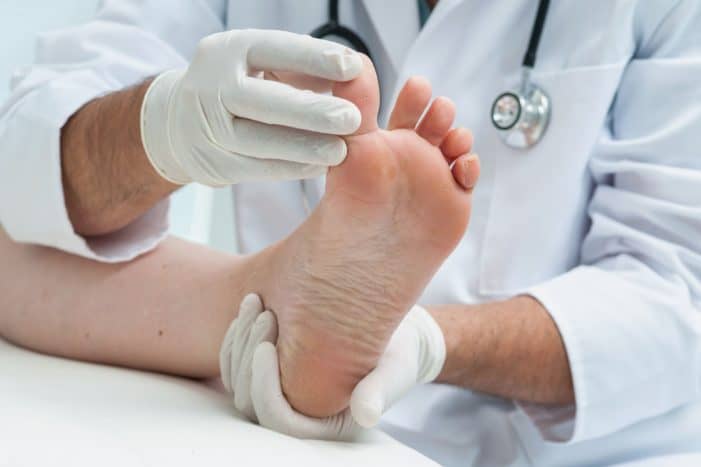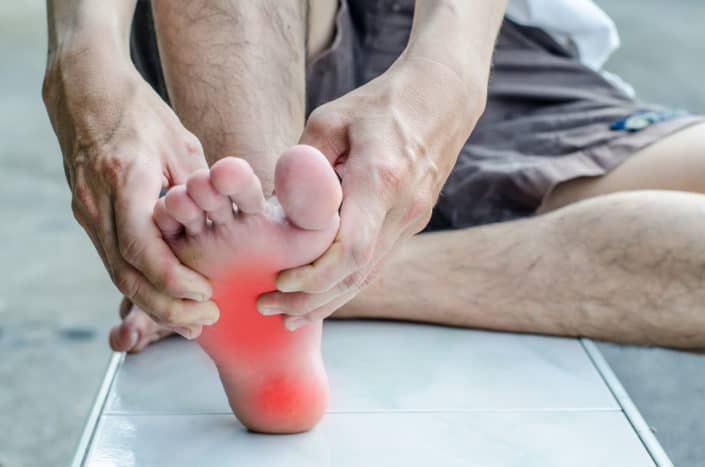Contents:
- Medical Video: Diabetic Foot Ulcers 101
- Who might have this complication?
- When should I see a doctor?
- Why do I have ulcers in the legs?
- What is the treatment for foot ulcers?
- How can I prevent ulcers?
Medical Video: Diabetic Foot Ulcers 101
Foot ulcers are one of the complications of diabetes that often occurs. Even in many cases, people with diabetes who are hospitalized are more often caused by foot ulcers than other complications. Good foot care, important to prevent the disease.
If ignored, infected ulcers can cause amputation. Treatment for foot ulcers due to diabetes varies depending on the cause. Discuss the pain and discomfort in your feet with your doctor to make sure this is not a serious problem.
Who might have this complication?
Foot ulcers can be caused by many factors. Unfortunately, all people with diabetes are at risk of developing this problem. There are several factors that can increase the risk of ulcers in the foot, such as:
- Using uncomfortable shoes
- Often drink alcohol
- Having eye disease due to diabetes
- Having heart disease
- Having kidney disease
- Obesity or obesity
- Smoking (can inhibit blood circulation)
Foot ulcers due to diabetes complications are most common in elderly men.
When should I see a doctor?
Ulcer legs can be treated if they can be detected early. You should immediately see a doctor if you experience pain in your feet to make sure you get the right treatment. The possibility of infection is higher if you leave it longer. In fact, untreated infections may require amputation.
Why do I have ulcers in the legs?
The most common causes of diabetic foot due to diabetes include:
- Damage to blood vessels. The lower body is like a foot, far from the main blood circulation. Well, this will slow wound healing. The reason is that the wound cannot get the intake and ‘medicine’ which should be obtained from the flowing blood. If this continues, it can cause an infected wound and then ulcers appear.
- Nerve damage. Nerve damage is caused by high blood sugar in diabetics. If this happens continuously can cause cell death. Death to nerve cells can cause damage to nerve tissue. This nerve damage then decreases the body's sensitivity, one of which is sensitivity to the feet in feeling sharp objects.
- Decreased immune system. Diabetics have a low immune system, which then causes wounds to heal longer and easily get infected.
- Infected wounds. Associated with the two previous factors, wounds that do not heal are caused by poor blood circulation and the sugar is not well channeled. Wounds are difficult to heal and become a place for developing bacteria and viruses.
What is the treatment for foot ulcers?
One of the best things you can do to treat ulcers is to rest your feet for a while. This is referred to as mitigation of foot load. The goal is to reduce the pressure in the legs so that the risk of infection increases.
Your doctor may recommend wearing certain tools to protect your feet such as:
- Diabetes shoes
- Cast
- Wrap your feet with compresses
- Use itin-soleandcushion padinside the shoes to prevent peeling and calluses on the feet
Diabetic foot ulcers can also be removed. This is a process where the doctor removes dead skin that shows signs of infection or foreign objects that may have caused ulcers (debridement).
Infection is a serious complication of foot ulcers and requires immediate treatment. Not all infections are treated in the same way. The tissue around the ulcer can be sent to the laboratory to determine which antibiotics will help. If your doctor suspects a serious infection, you may want to do an x-ray test to look for signs of bone infection.
How can I prevent ulcers?
Ensuring that blood glucose levels continue to be within normal limits is one of the effective ways to prevent ulcers. By keeping blood glucose levels normal, the risk of diabetes complications will be lower.
Some other ways you can try to prevent diabetic foot problems include:
- Diligently wash your feet every day
- Make sure your feet are not damp
- Using footwear that fits right on your feet
- Check feet every day
- Use insulin and other diabetes drugs as instructed by a doctor
- Change your socks once a day and choose loose / not tight socks.
- Routinely consult a doctor to monitor the condition of your feet
Another challenge is to prevent the return of foot ulcers after they have been treated. Scar tissue can be infected if the area is disturbed again. Your doctor may recommend that you wear diabetes shoes to prevent ulcers from returning.

